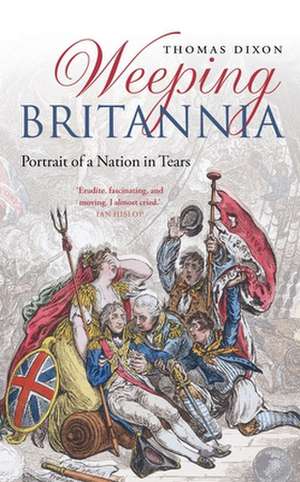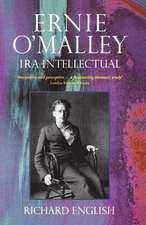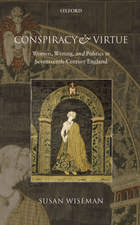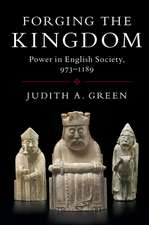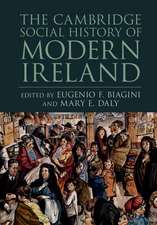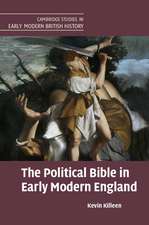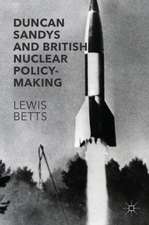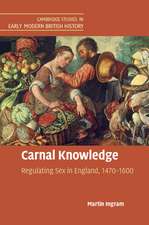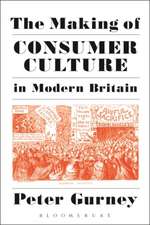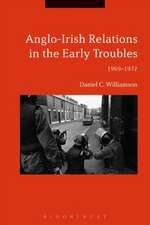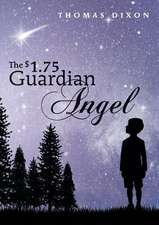Weeping Britannia: Portrait of a Nation in Tears
Autor Thomas Dixonen Limba Engleză Paperback – 25 mai 2017
| Toate formatele și edițiile | Preț | Express |
|---|---|---|
| Paperback (1) | 84.05 lei 11-16 zile | |
| OUP OXFORD – 25 mai 2017 | 84.05 lei 11-16 zile | |
| Hardback (1) | 157.94 lei 32-37 zile | |
| OUP OXFORD – 10 sep 2015 | 157.94 lei 32-37 zile |
Preț: 84.05 lei
Preț vechi: 91.55 lei
-8% Nou
Puncte Express: 126
Preț estimativ în valută:
16.08€ • 16.81$ • 13.59£
16.08€ • 16.81$ • 13.59£
Carte disponibilă
Livrare economică 03-08 februarie
Preluare comenzi: 021 569.72.76
Specificații
ISBN-13: 9780199676064
ISBN-10: 0199676062
Pagini: 456
Ilustrații: 30 black and white halftones
Dimensiuni: 136 x 215 x 25 mm
Greutate: 0.54 kg
Editura: OUP OXFORD
Colecția OUP Oxford
Locul publicării:Oxford, United Kingdom
ISBN-10: 0199676062
Pagini: 456
Ilustrații: 30 black and white halftones
Dimensiuni: 136 x 215 x 25 mm
Greutate: 0.54 kg
Editura: OUP OXFORD
Colecția OUP Oxford
Locul publicării:Oxford, United Kingdom
Recenzii
An insightful cultural history, and an invitation to reassess our own perception of tears as a healthy emotional response: timely and thought-provoking.
Lively and entertaining.
The book I most enjoyed this year was Thomas Dixon's Weeping Britannia.Using a wide range of literary sources and personal documents, the book makes a wonderfully vivid contribution to the history of the emotions, raising fascinating questions about how our expression of feeling is subject to cultural conditioning.
Entertainingly written, and personal to just the right degree, Dixon's book reveals how short-lived was the British cult of the stiff upper lip, and persuades me, as least, not to mourn its passing.
An elegantly written book that will transform your understanding of the British national character.
One of the most lauded history books of 2015.
A history of tears makes for a tragicomic read and Dixon has an appropriately light touch. His is a cheerful, erudite book, which charts our attitude to weeping, the contention being that the British have often been proficient, even virtuosic weepers. Dixon blends academic and popular culture well; his voice is accessible and human.
... erudite and entertaining ... This is a book that surprises and delights.
So well written, to the point and enlightening that there were times I almost wept.
enjoyable and scholarly ... one of the many pleasures of Dixon's book is the range of examples that he uses to show us how this story of weeping and the emotional cultures framed by it is never absolute.
A wide-ranging, enjoyable and accessible history of British weeping ... If current public debates about British national identity make you want to burst into tears, Weeping Britannia is an enjoyable reminder that you're in good company.
Immensely readable and often puckish ... Dixon's instinct for connections and comparisons is unfailingly sharp and illuminating.
ambitiously wide-ranging and thoroughly engaging
[Dixon deploys] many delightful vignettes to show that crying has gone in and out of fashion over the centuries, like flared trousers or big pants. His aim is to create "a portrait of a nation through a series of lachrymose miniatures" - 20 short chapters (or, for those of you of a more tolerant disposition, what he calls "twenty historical teardrops"). The result is a moving, tender and encyclopedic depiction of key events, individuals and texts that serve to illustrate Dixon's theory that it was the Reformation, the French Revolution and the Empire that stifled the sob-fests.
Weeping Britannia deserves to be widely read ... It makes for an enjoyable as well as an instructive read; Dixon's writing style is lively, engaging, and very human.
This book is a stunning example of what history and literary criticism are capable of. It shows that the humanities can be not only "relevant" and fascinating, but even liberating, when they take actual human beings as their subject.
Erudite, fascinating, and moving. I almost cried.
Simply magnificent. The best thing I have read this year...A brilliant, sad, and funny history.
Please stop crying. Hooray! There's finally a book telling us why we're all at it non-stop - peppered with fascinating facts about the nation's biggest public boo-hooers.
Lively and entertaining.
The book I most enjoyed this year was Thomas Dixon's Weeping Britannia.Using a wide range of literary sources and personal documents, the book makes a wonderfully vivid contribution to the history of the emotions, raising fascinating questions about how our expression of feeling is subject to cultural conditioning.
Entertainingly written, and personal to just the right degree, Dixon's book reveals how short-lived was the British cult of the stiff upper lip, and persuades me, as least, not to mourn its passing.
An elegantly written book that will transform your understanding of the British national character.
One of the most lauded history books of 2015.
A history of tears makes for a tragicomic read and Dixon has an appropriately light touch. His is a cheerful, erudite book, which charts our attitude to weeping, the contention being that the British have often been proficient, even virtuosic weepers. Dixon blends academic and popular culture well; his voice is accessible and human.
... erudite and entertaining ... This is a book that surprises and delights.
So well written, to the point and enlightening that there were times I almost wept.
enjoyable and scholarly ... one of the many pleasures of Dixon's book is the range of examples that he uses to show us how this story of weeping and the emotional cultures framed by it is never absolute.
A wide-ranging, enjoyable and accessible history of British weeping ... If current public debates about British national identity make you want to burst into tears, Weeping Britannia is an enjoyable reminder that you're in good company.
Immensely readable and often puckish ... Dixon's instinct for connections and comparisons is unfailingly sharp and illuminating.
ambitiously wide-ranging and thoroughly engaging
[Dixon deploys] many delightful vignettes to show that crying has gone in and out of fashion over the centuries, like flared trousers or big pants. His aim is to create "a portrait of a nation through a series of lachrymose miniatures" - 20 short chapters (or, for those of you of a more tolerant disposition, what he calls "twenty historical teardrops"). The result is a moving, tender and encyclopedic depiction of key events, individuals and texts that serve to illustrate Dixon's theory that it was the Reformation, the French Revolution and the Empire that stifled the sob-fests.
Weeping Britannia deserves to be widely read ... It makes for an enjoyable as well as an instructive read; Dixon's writing style is lively, engaging, and very human.
This book is a stunning example of what history and literary criticism are capable of. It shows that the humanities can be not only "relevant" and fascinating, but even liberating, when they take actual human beings as their subject.
Erudite, fascinating, and moving. I almost cried.
Simply magnificent. The best thing I have read this year...A brilliant, sad, and funny history.
Please stop crying. Hooray! There's finally a book telling us why we're all at it non-stop - peppered with fascinating facts about the nation's biggest public boo-hooers.
Notă biografică
Thomas Dixon is a historian of emotions, philosophy, science, and religion at Queen Mary, University of London, where he directs the Centre for the History of the Emotions. A regular contributor to radio and television programmes as an academic consultant, interviewee, and presenter, he was the consultant for Ian Hislop's Stiff Upper Lip: An Emotional History of Britain, a three-part BBC Two series in 2012. The author of several books and numerous articles on the history of ideas, in 2008 he was awarded the Dingle Prize (for the best book on the history of science accessible to a wide readership) for his Science and Religion: A Very Short Introduction, also published by Oxford University Press.
